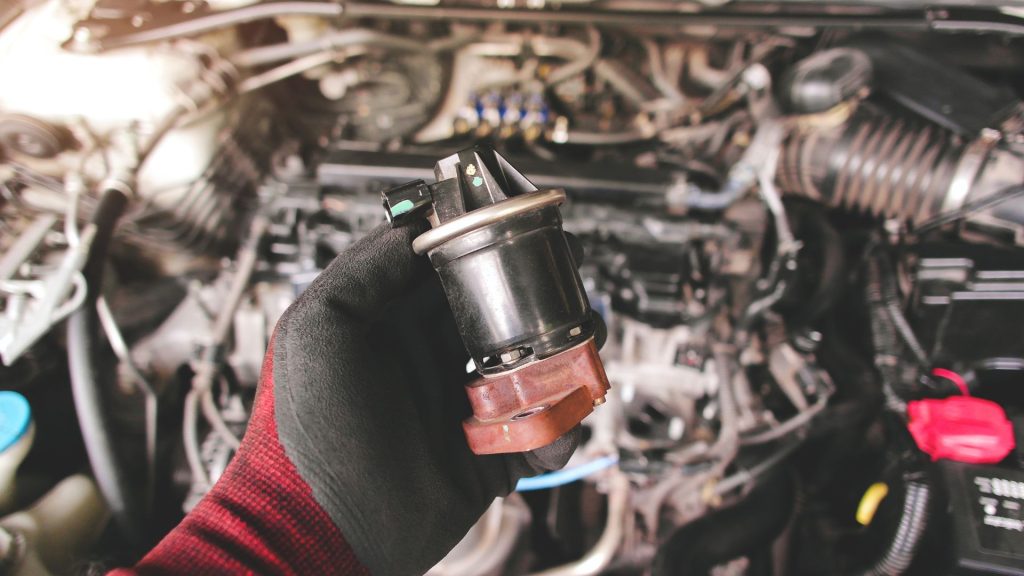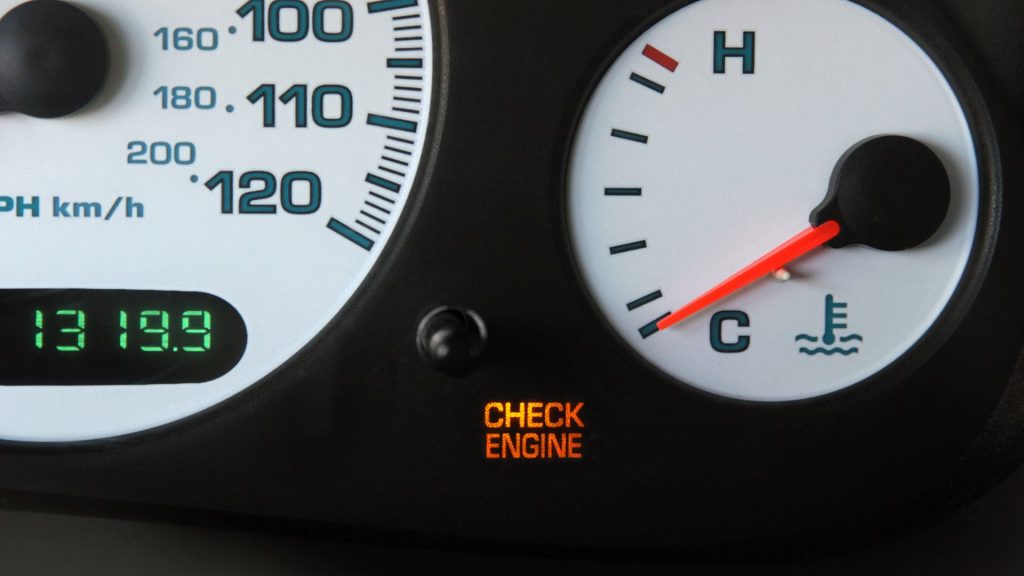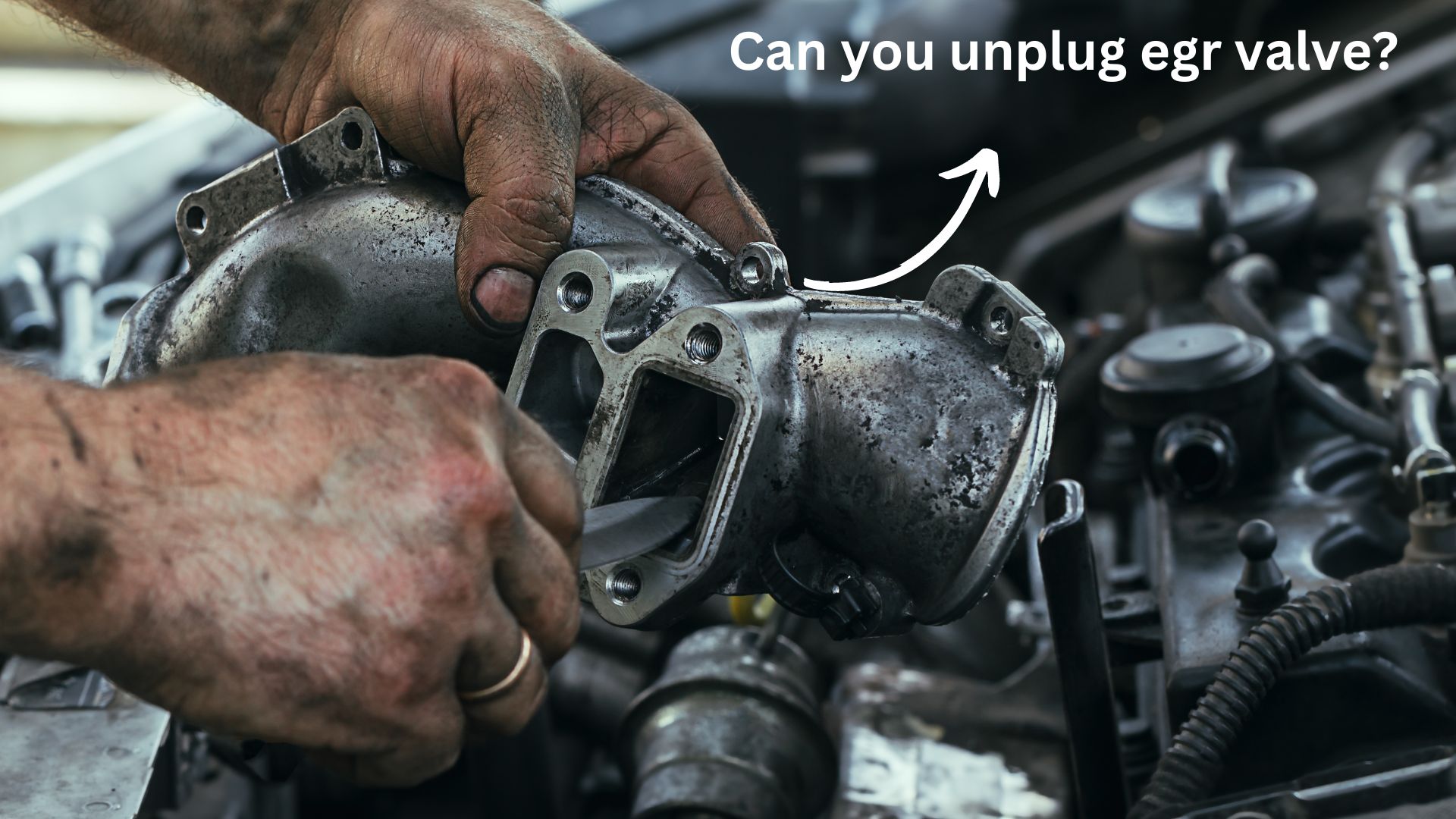To the layperson, the EGR valve sounds like a vital engine part that allows the car to run, but that couldn’t be further from the truth. The letters stand for ‘Exhaust Gas Recirculation.’ The device is designed to control toxic emissions. According to Evans Halsahw, an EGR takes exhaust gas through the intake manifold into the combustion chamber to reduce combustion temperatures and the production of nitrogen oxide.
You get nitrogen oxide when nitrogen and oxygen gases react at high temperatures during the combustion process. Government bodies are weary of NOx because it contributes to smog, which is detrimental to human health. The EGR system protects people and the environment from a car’s toxic emissions.
How Does EGR Work?

- The EGR valve sends finely metered exhaust gas to the combustion chambers, where it combines with fresh intake air.
- This reduces the oxygen content while elevating the volume of water vapor in the combustion mixture.
- The peak combustion temperature falls, reducing the quantity of NOx produced as a result.
- Science Direct has published a diagram from ‘Reference Module In Earth Systems And Environmental Science.’ It shows the workings of the EGR system in an engine. The EGR system will recirculate 15 to 20 percent of the exhaust gases.
- The EGR valve remains closed during idling.
- The EGR valve starts to open when the engine warms (under load).
- The EGR valve will send exhaust gases into the intake manifold, producing a cooling effect once the combustion temperature crosses a specific threshold.
What Are The Pros Of An EGR Valve?
- It reduces toxic emissions.
- It can extend the engine’s life.
- It can improve the engine’s efficiency.
- It can increase the engine’s performance.
- It will reduce the engine’s temperature.
- It prevents combustion knocking.
What Are The Cons Of An EGR Valve?
- A diesel engine may consume more fuel.
- PM deposition in the engine will increase.
- Lubricating oil pollution.
- Corrosion may occur when gaseous sulfur oxide (in the flue gas) produces sulfuric acid.
What Does The Law Say About EGR Valves?
Laypeople and mechanics debate the merits of EGR systems all the time. Some people believe that EGR valves restrict a car’s performance, and removing the system will actually improve performance, fuel efficiency, and power. Others argue the opposite.
This has encouraged many consumers to experiment by unplugging the EGR and recording the results. What if you decide that your car performs better without an EGR valve? You don’t have a choice.
If you unplug or delete the EGR, your vehicle won’t pass emissions tests. What if you don’t mind paying the fine, especially if it means boosting your vehicle’s performance? Some people think these fines are no different from simple traffic tickets. They will happily shell out a few hundred dollars if it means driving without an EGR system. But that mindset is wrong.
According to Which Car?, your local authorities could fine you as much as $30,000 for removing or compromising the operations of anti-pollution devices. Are you ready to pay $30,000? Probably not.
The Environmental Protection Agency takes this issue more seriously than many people realize. But this is why the ‘EGR Deletion VS EGR Unplugging’ debate is so popular.
Is it Safe To Remove Or Unplug An EGR Valve?
It depends. A contributor to this Insight Central forum panicked because their car bucked disturbingly when they unplugged the EGR. Although, they solved the problem by getting new O2 sensors.
However, it is worth noting that cars worked without EGR systems for decades. So why do some vehicles go into limp mode when you unplug the EGR? Why do some technicians warn laypeople about potential engine damage? Why is your ‘Check Engine’ light on?

You can blame the computer. Computers in modern vehicles are complex devices that use numerous sophisticated input and output sensors to manage the engine’s functions. The computer is accustomed to the EGR’s operations.
It expects the exhaust gases to flow into the combustion chamber. Therefore, disabling it can create instabilities. You need an expert to reprogram the ECU. Otherwise, unplugging the EGR valve is perfectly safe for your engine.
Naturally, this step is only appropriate if environmental pollution doesn’t bother you. After all, unplugging the EGR valve increases NOx emissions.
Is It Better To Unplug Or Delete The EGR?
Again, it depends. If you hate an EGR’s impact on your car’s performance, you have various options at your disposal. For instance, Blocking off the EGR valve by finding a steel plate (⅛ inches thick), tracing the EGR gasket into it (but leaving out the holes for the EGR flow), and installing the steel plate under the EGR valve.
You can also remove the EGR valve using an aftermarket performance kit. But whether you unplug or delete the EGR, the result is the same. The exhaust gas won’t recirculate. Deletion offers the same benefits people associate with unplugging. That includes increasing the power and fuel efficiency.
The side effects are also the same, such as reducing horsepower, illuminating the ‘Check Engine’ light, engine knocking, and more.
The biggest difference between deletion and unplugging is the options it gives you where inspections and tests are concerned. In both cases, your vehicle will fail emissions tests and inspections.
This risk is not limited to drivers in the United States. From this International Council On Clean Transportation guide, you can see that EGR systems are crucial to a Euro 6 Emissions Standards compliant vehicle.
Removing EGR valves from cars you intend to drive on European roads is illegal. The Department for Transportation expects drivers to pay a whopping 1,000 pounds for removing the EGR valve and failing an MOT test.
But how does unplugging help you here? You can plug the EGR back in before the emissions test and unplug it immediately after the test. You don’t have this option if you delete the EGR.
What About EGR Valves That Malfunction?
Unplugging or deleting an EGR valve isn’t always necessary. Sometimes, these devices stick because carbon deposits have accumulated, which prevents the exhaust gases from circulating. This produces the same results as unplugging or deleting the EGR valve.
However, clogged EGRs are nothing to scoff at because they tend to generate black smoke through the exhaust. Additionally, your vehicle’s fuel consumption will increase even as the performance falls.
If you can see the ‘Check Engine light, the EGR valve cannot open or close. Keep an eye out for the following:
- The car will produce more emissions instead of less.
- The vehicle will stall while idling.
- You will notice a fuel odor.
- You may record knocking sounds and rough idling.
If you think the EGR valve is defective or blocked, take the car to a mechanic. Your local authorities may fine you for driving a vehicle with a faulty EGR system. A mechanic can access, remove, clean, or replace the EGR valve.
They will also tell you whether or not you can safely and legally unplug the EGR valve. If you can’t, they will offer alternative solutions to the poor performance and fuel efficiency you associate with the EGR valve.

